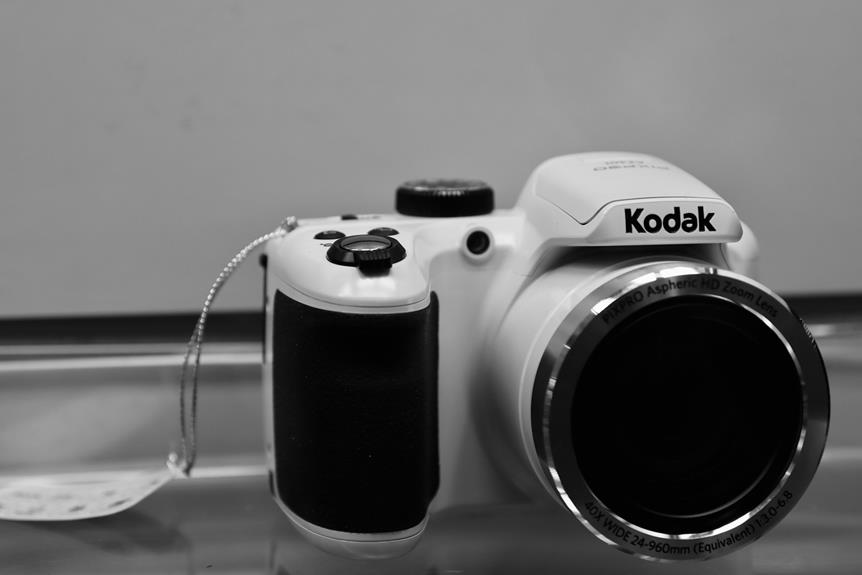
When choosing the perfect camera lens for your needs, start by assessing your photography style. Identify if you prefer landscapes, portraits, or intricate details. Understand key lens specifications like aperture, focal length, and image stabilization to cater to your shooting preferences. Consider your budget limitations and prioritize essential features within that range. Seek recommendations and reviews from experienced photographers for valuable insights. By following these steps, you will be on your way to making an informed decision that aligns with your creative vision and financial boundaries.
Assess Your Photography Style
Identify your photography style by reflecting on the subjects and settings you most frequently shoot with different lenses. Are you drawn to capturing sweeping landscapes, intricate details, or candid portraits? Your preferred subjects can help determine the best lens for your needs.
For landscape photography, wide-angle lenses are ideal for capturing vast scenes in sharp detail. If you enjoy capturing intricate details or macro shots, a macro lens will allow you to get up close and personal with your subjects, revealing textures and nuances that may go unnoticed with the naked eye.
When it comes to portraits, a prime lens with a wide aperture can create beautiful bokeh, isolating your subject from the background and adding a dreamy quality to your images. By analyzing the subjects and settings you frequently shoot, you can pinpoint the types of lenses that will enhance your photography style and elevate your work to the next level.
Understand Lens Specifications
When exploring camera lens specifications, it's important to understand key terms such as focal length, aperture, and image stabilization to make informed decisions about which lens will best suit your photography needs.
Focal length determines the magnification and angle of view, with shorter focal lengths providing a wider field of view and longer focal lengths offering more magnification.
Aperture, represented by f-numbers like f/1.8 or f/4, controls the amount of light entering the lens and affects depth of field. A lower f-number lets in more light and creates a shallower depth of field, ideal for portraits, while a higher f-number results in a larger depth of field, suitable for landscapes.
Image stabilization reduces the effects of camera shake, crucial for handheld shooting at slower shutter speeds. Understanding these specifications will help you choose a lens that aligns with your photography style and preferences.
Consider Your Budget
Take a realistic look at your financial constraints when selecting a camera lens. Setting a budget is crucial in narrowing down your options and ensuring you choose a lens that meets your needs without breaking the bank. Camera lenses come in a wide range of prices, from budget-friendly options to high-end professional lenses. Consider how much you're willing to invest in a lens based on your photography goals and financial situation. Keep in mind that quality lenses can be a significant investment, but they often provide better image quality and durability in the long run.
When determining your budget, think about the features that are essential to you and prioritize them accordingly. Decide whether you're willing to sacrifice certain specifications for a lower price point or if investing a bit more will provide the performance you desire. Remember to account for any additional accessories or maintenance costs that may arise when budgeting for your new lens.
Seek Recommendations and Reviews
To make an informed decision when choosing a camera lens, seeking recommendations and reading reviews from experienced photographers can provide valuable insights into the performance and suitability of various lens options. Hearing about real-world experiences can help you understand how a particular lens performs in different conditions and whether it meets your specific needs.
Online platforms like photography forums, review websites, and social media groups dedicated to photography are great places to seek recommendations and read reviews. Look for feedback from photographers who have similar shooting styles or preferences to yours, as their insights can be particularly relevant.
Additionally, consider asking for recommendations from photographers you know personally or through networking events. They can offer personalized advice based on your skill level and the type of photography you enjoy.
Remember to take both positive and negative reviews into account, as they can give you a more well-rounded understanding of a lens's capabilities and potential drawbacks. By gathering recommendations and reviews, you can make a more informed choice when selecting the perfect camera lens for your needs.
Conclusion
Now that you have assessed your photography style, understand lens specifications, considered your budget, and sought recommendations and reviews, you're well-equipped to choose the perfect camera lens for your needs.
Remember to prioritize quality and compatibility with your camera body to ensure you capture the best possible images.
Happy shooting!




